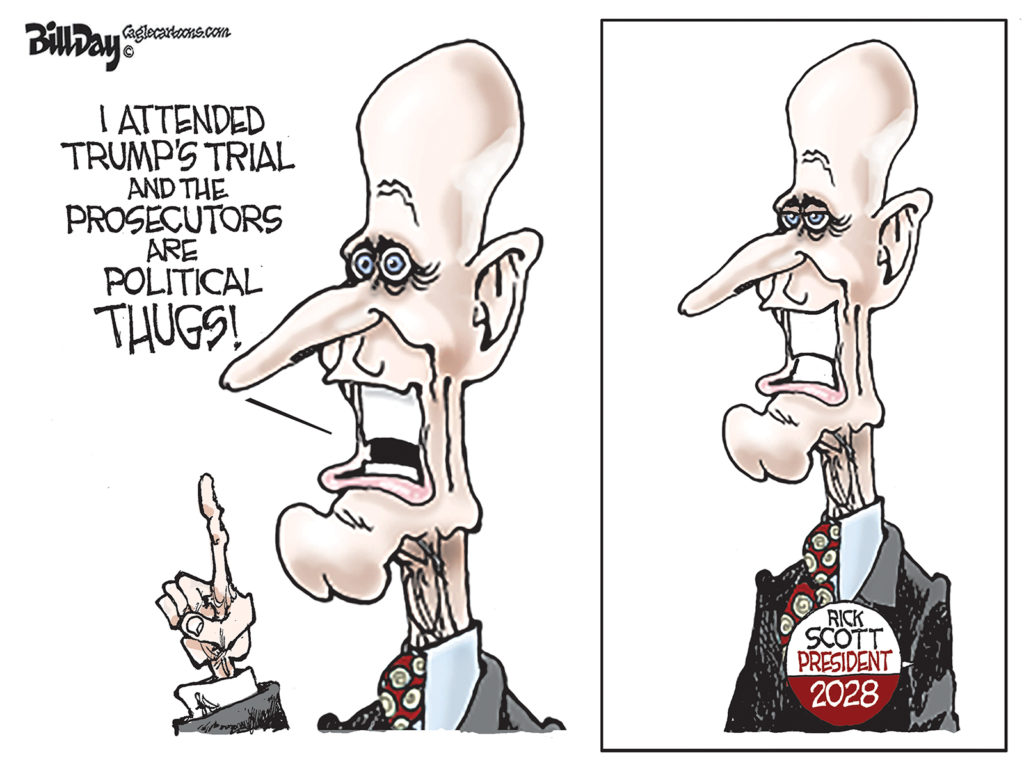The problem with negotiations is that hindsight is always 20-20 when the smoke clears a few months later.
The truth of the matter is that City of Memphis, Shelby County, and State of Tennessee could have insisted on putting more conditions into the contract with Electrolux. It is equally true that there would not now be a contract to second guess because Electrolux would have selected a different city.
Electrolux made it clear that it would walk if additional conditions – which were in fact favored by government – were included, and after losing 35,000 jobs in the preceding nine years, we weren’t really in a position to make demands in the first place. We just needed the jobs too badly.
It’s a fundamental rule of negotiations. The party with the greatest need generally has to give more in negotiations to seal the deal. In the Electrolux negotiations, the company was clearly in the driver’s seat, because it had other offers it could take.
Got to Do Somethig
More to the point, Memphis had to do something to stop the bleeding of jobs and reverse the tide. It’s worth remembering that Memphis lost the record number of jobs in the years before the global recession, so there was almost no one who thought things would improve when the global economy came to a standstill.
And yet, things did improve. In the past couple of years, our community attracted and created new jobs – about 10,000 of them.
It’s never a bad thing when Memphis City Council raises the importance of minority business, but it’s hard to imagine that its members, if more directly involved in the contract’s terms, would have put the deal at risk to add more conditions to the contract. Suggestions that have been made to amend the City of Memphis charter to give the legislative branch more control over negotiations is simply a bad idea.
After all, Memphis City Council in effect approved the contract as it is written when it approved the $40 million contribution from city government to the project.
Tone Deaf
As for Electrolux, we hope that their products are more responsive than company leaders. By and large, they have been tone deaf to Memphis’ concerns, complicating the political environment for its supporters and giving credence to stories about disrespectful treatment of Memphians who have tried to show the company a way to achieve its objectives while responding to local concerns.
We’re way past the time when we should fall for rhetoric that it just isn’t possible to find local minority companies who can work on construction of Electrolux’s manufacturing facility. In the first two phases of the Pyramid redevelopment project for Bass Pro Shops, minority participation has exceeded 40% in both phases and was just shy of 50% in one.
It’s the fact that we have companies who can do the work at Electrolux that makes the company’s reactions and comments so frustrating. There is a way where everyone wins, but first, Electrolux needs to shift from tough negotiator to corporate citizen.
Timing Is Everything
Nobody has been more critical than we have about our local addiction to tax freezes for economic development. Nobody has been more frustrated about the $50 million in taxes that have been waived routinely for decades to businesses asking for tax freezes. Nobody has been more cynical about the interest by some employers in keeping Memphians in a low-wage, low-skill economy.
Nobody has been more passionate about the need to develop workers who can compete in a knowledge economy. Nobody has been more dismissive about the argument that we have to waive taxes to make up for the poor state of our workforce, an argument we’ve made for 25 years while doing little to actually improve our workforce.
And yet, we believe that the government incentives paid for Electrolux and Mitsubishi to locate manufacturing operations here are justified. We also believe that the Greater Memphis Chamber of Commerce deserves serious credit for its work on these two projects, because it knew that our economy needed emergency resuscitation. In fact, it’s because our economy is gasping for air that we think that these incentives are merited.
The only thing harder than finding business prospects are the negotiations to seal the deals. It’s nearly impossible for local economic development officials not to feel at times that they are negotiating against themselves. Because of it, there’s often little to do but err on the up side of incentives. Faced with an economy that was tanking, we think that the determination of Chamber officials to close the deal is understandable.
Three Reasons
Besides the loss of 34,700 jobs in nine years, a recent analysis of private sector jobs growth in the top 100 regions by the U.S. Bureau of Labor, there were 89 regions ahead of us. Put another way, we have lost 1.5 jobs a day for the past nine years. Meanwhile, we’ve lost $1.9 billion in income.
There is a point at which a city’s economy gets much more difficult to pull out of a descent because the city has developed a negative narrative and an unfavorable reputation that can become deadly in the incestuous world of site location firms. It seems to us that there are reasons that made this a time when Memphis needed to go the extra mile to snare these companies.
First, the jobs are located in the core city where there is existing infrastructure that is already paid for.
Second, these are manufacturing jobs, which continue to be the gold standard for cities like ours without a deep knowledge economy. There’s little argument that they are much more preferable to our regular diet of warehouse and distribution jobs.
Mostly Upside
Third, there is the potential for these facilities to give us a stronger position in the increasingly important export economy. As President Obama said in his 2010 State of the Union address, the Administration’s goal is to double U.S. exports in the next five years to support and create U.S. jobs. In the past year, exports have outperformed the economy overall, but exports in our region has not been a widely pursued strategy for economic growth.
In a ranking of the top 100 U.S. metros, Memphis is #50 in annual exports, #65 in export share of GMP, and #46 in export jobs. Memphis produces $5.6 billion in exports; 9.3% of what is produced here is exported, and exports employ 44,515 people.
It’s in this context that it’s pretty hard to criticize the philosophy that was used to get the Electrolux deal done. It may not have all the upside that we all might have wished, but at least for once, we have upside in the creation of several thousand badly needed jobs.





While the council’s concerns are valid, if we saddle international corporations with the baggage (both financial and pr) of our local inability to get along we will continue to miss opportunities for economic growth. Such concerns are valid when competing for jobs that pit Memphis against other communities with the same concerns but in a global economy the higher costs that may be associated with such factors may also be enough to push the balance in our competition’s favor.
Does DeSoto County have hiring quotas?
Just askin…
What’s Desoto County’s record of business & industry recruitment versus Williamson County, TN? Just wonderin.